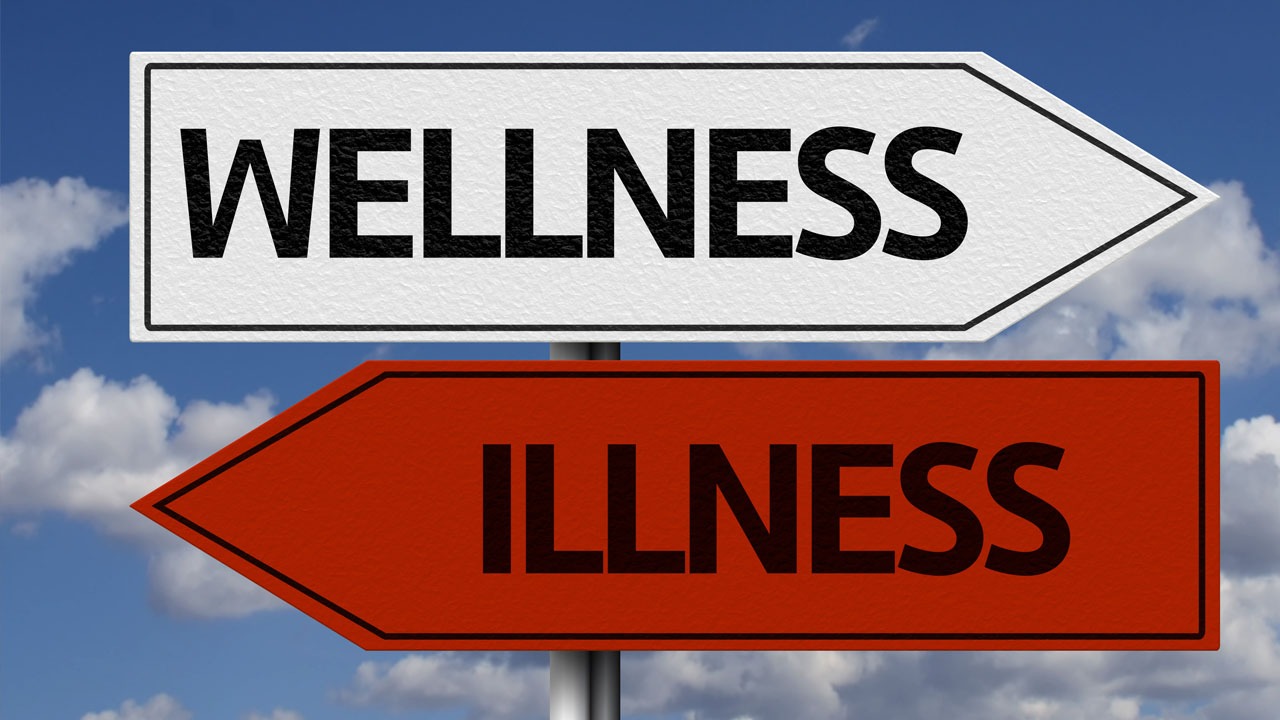Did you know that more than 70% of chronic disease risk is shaped by everyday lifestyle choices, not just genetics? This surprising fact shines a light on why holistic health is more than a trend—it's a transformative approach that activates your body’s natural ability to find balance and heal. In this comprehensive guide, you’ll uncover eye-opening research, actionable rituals, and practical insights to help you build a healthier, more balanced body and mind—starting today.
Whether you’re new to holistic health or seeking fresh hacks for a more vibrant life, this article reveals proven daily routines, cutting-edge integration between primary care and holistic medicine , and the real secrets holistic health professionals recommend. Ready for a total wellness upgrade? Let’s dive in.
Reimagining Health: Surprising Facts That Transform Your Approach to Holistic Health
Our traditional health care system often focuses on treating symptoms and illness, neglecting the deeper roots of well-being. What’s surprising for many is that over 70% of chronic disease risk factors—like heart disease, diabetes, and high blood pressure—are shaped by our daily choices. This core belief in holistic health is turning the world of health care upside down. Instead of just reacting to illness, more people are proactively seeking alternative medicine and holistic medicine therapies that focus on mind, body, and spirit.
Recent years have seen leading health systems adopt integrative approaches, bringing holistic health care into mainstream practice. With millions pursuing alternative and complementary care, the conversation is shifting from “disease management” to genuine prevention, treating the whole person, and long-term vitality. This shift is not only evidenced in statistics but lived daily by those prioritizing holistic wellness.

- Recent studies show that over 70% of chronic disease risk can be impacted by lifestyle choices—a core tenet of holistic health.
- Integrative holistic medicine is gaining traction, with millions now seeking alternative and complementary health care options.
- Many leading health care systems are incorporating holistic health strategies alongside conventional treatments.
Why Holistic Health Is More Than A Trend
Unlike a fleeting fad, holistic health represents a profound shift in our approach to health . Today, renowned holistic doctors and naturopathic physicians work side-by-side with conventional providers, blending time-tested natural medicine, preventive care, and lifestyle optimization. This movement honors the unique interplay between our physical, mental, and spiritual selves. By integrating mindful practices, nutrition, movement, and emotional health, holistic health transcends trends to foster real, lasting change—helping you unlock higher energy, clarity, and resilience every day.
"The doctor of the future will give no medicine, but will interest his patients in the care of the human frame, in diet, and in the cause and prevention of disease." – Thomas Edison
What Is Holistic Health? Key Principles and Practices in Holistic Medicine
To truly benefit from holistic health, it's important to understand its fundamental principles. Holistic health emphasizes balance across mind, body, and spirit, moving far beyond symptom management. It incorporates both ancient healing traditions and evidence-based practices to support optimal health and wellness. In holistic medicine , every part of you—including your emotions and social health—plays a vital role in your overall vitality.
The difference between holistic health and traditional health care lies in their focus: while conventional systems often target specific illnesses with medication and procedures, holistic practitioners focus on prevention, root causes, and the interconnectedness of your daily life choices. This integrated, personalized approach is central to holistic health care and is being increasingly adopted by medical doctors and healthcare providers worldwide.
Defining Holistic Health vs. Traditional Health Care
Traditional health care often centers on addressing acute conditions, relying heavily on pharmaceuticals and surgery to manage symptoms and diseases. In contrast, holistic health sees health as a dynamic state of being—one that requires aligned attention to your mental, emotional, spiritual, and social needs, as well as your physical condition. Many naturopathic doctors and holistic practitioners design care plans encompassing dietary changes, stress management, physical activity, and lifestyle modifications. By integrating these diverse elements, holistic medicine supports not just the absence of sickness but the flourishing of the whole person.

Holistic Medicine: Mind, Body, and Spirit Integration
At the core of holistic medicine lies the belief that optimal health is achieved only when all aspects of a person are in harmony. This model involves using natural medicine, such as herbal remedies, acupuncture, and dietary support, alongside conventional medical treatments when needed. Practices like yoga, meditation, mindful breathing, and even alternative therapies such as traditional Chinese medicine can be a part of a tailored holistic regimen. Ultimately, this approach helps you become an active participant in your own wellness, empowering you to embrace preventive strategies rather than waiting for disease to develop.
| Aspect | Holistic Health | Conventional Health Care | Holistic Medicine |
|---|---|---|---|
| Focus | Mind, Body, Spirit | Symptoms & Diseases | Preventive & Natural |
Holistic Health Hacks: Daily Rituals for a Balanced Body and Mind
One of the best ways to adopt holistic health is through simple, sustainable routines that support your overall wellness. Building daily hacks into your lifestyle helps you tap into the healing power of your mind, body, and spirit—surpassing traditional health care’s focus on isolated treatments. The key is consistency; even small changes, practiced regularly, can create a profound cumulative effect.
By integrating both morning and evening rituals , along with movement and mindfulness, you not only address your physical needs but also uplift your mental and emotional health. These curated routines are recommended by top holistic doctors, naturopathic physicians , and primary care professionals who see firsthand how these daily rituals foster resilience, balance, and joy.
For those looking to enhance their daily wellness routines, incorporating practices like massage therapy can be a powerful addition. Exploring the benefits of Swedish massage offers a practical way to support relaxation, reduce stress, and complement your holistic health journey.
Morning and Evening Routines for Holistic Health
Crafting intentional bookends to your day is foundational for sustained energy and well-being. Start your mornings with mindfulness meditation —even five minutes can help recalibrate your stress response, regulate blood pressure, and establish calm clarity. Next, consider a nourishing, plant-based breakfast , rich in antioxidant-packed fruits, leafy greens, and whole grains. Studies indicate that plant-based diets are linked to lower chronic disease risk and improved immune system function.
End your day with gentle stretching, restorative yoga, or deep breathing to encourage restful sleep and support your mental health. These bookend practices nurture both physiological healing and emotional balance, creating a supportive rhythm for your mind, body, and spirit. Over time, these daily rituals become the backbone of your holistic health journey.
- Mindfulness meditation
- Plant-based breakfast ideas
- Stretching and yoga for holistic health

Supporting Mental Health By Fostering Holistic Wellness
Mental health is inseparable from overall holistic health. Practices such as journaling, gratitude exercises, digital detoxing, and connecting with nature have been shown to improve mood and reduce anxiety. Holistic medicine often incorporates behavioral health and talk therapy alongside natural remedies to support sustainable emotional health. By normalizing support for mental wellness within your daily routines, you reinforce emotional resilience and a healthier response to life's stresses.
"Taking care of your mental health is an essential pillar of holistic health."
Movement and Activity: Physical Elements of Holistic Health
Regular, joyful movement is a keystone habit for holistic wellness. Unlike strict gym regimens, holistic health encourages integrating movement throughout your day—think walking, dancing, swimming, or gentle yoga. These activities not only strengthen your cardiovascular function and immune system but can also lift your mood and clarity. Evidence suggests that moving every hour reduces sedentary health risks, balances blood pressure, and supports mind-body harmony—key components of both holistic health care and primary care recommendations.
The benefit of a holistic approach to movement is that it's inclusive and adaptable; activities can be personalized to your energy, interests, and physical needs. Consider consulting with a naturopathic physician or holistic doctor to design a movement plan that aligns with your unique health goals. By embracing physical activity as more than just exercise—seeing it as a way to celebrate and nurture your body—you lay the foundation for long-term wellness and prevention.
Holistic Approach in Health Care: Integrating Primary Care and Holistic Therapy
The future of health care lies in blending the best of conventional primary care and holistic therapies. Modern primary care providers and family medicine practices are collaborating with holistic doctors to offer truly comprehensive care—addressing acute medical conditions, chronic disease prevention, and total lifestyle support. This hybrid model recognizes that treating the whole person, not just isolated symptoms, leads to better health outcomes, increased patient satisfaction, and even more efficient health systems.

The Role of Holistic Doctors and Family Medicine in Modern Health Care
Holistic doctors and family medicine practitioners are leading the charge in reshaping health care. By combining their expertise, patients receive a more rounded evaluation—taking into account lifestyle, nutrition, mental health, and environmental influences alongside conventional diagnostics. This partnership is especially valuable for those managing chronic conditions, as it leverages prevention, tailored interventions, and natural medicine to complement standard treatments.
Many family medicine practices now feature naturopathic doctors, integrative care providers, and access to holistic therapies like acupuncture, chiropractic, or Chinese medicine. This collaborative approach makes navigating complex health challenges less stressful for patients, and creates a supportive relationship between you and your care team. As trust and communication improve, so do health outcomes.
Collaborative Health Care: Bridging Holistic Health with Primary Care
The bridge between holistic health and primary care is built on respect, communication, and open-minded treatment planning. Integrated care teams frequently exchange insights, sharing not just lab reports and medications, but also ideas on stress management, dietary guidance, and supplemental therapies. This partnership is especially powerful in preventive care—empowering you to take charge of your wellness journey while receiving ongoing support and professional oversight.
By blending the strengths of each system, patients experience improved access to resources, a wider array of treatment options, and care that values their unique needs and goals. This approach is supported by major health organizations and is increasingly available at progressive health systems and medical clinics throughout the world.
Preventive Strategies: Blood Pressure, Nutrition, and Lifestyle in Holistic Medicine
Prevention is at the heart of both holistic health care and modern primary care. Regular monitoring of blood pressure, maintaining a plant-based or nutrient-dense diet, and building a relationship with a naturopathic physician can dramatically reduce the risk of chronic disease. These steps, often overlooked by standard health systems, put your long-term health back into your hands.
Plant-based eating, recommended by holistic medicine practitioners, is linked to lower blood pressure and improved cardiovascular outcomes. Tech tools and at-home monitors make tracking your progress easier than ever. Small, daily changes—like swapping processed snacks for fresh produce or setting reminders for movement—equip you to stay ahead of potential problems and reinforce the self-care that holistic health is all about.
- Regular monitoring of blood pressure
- Plant-based diets
- Connecting with a naturopathic physician
Developing Your Personal Approach to Holistic Health
Achieving holistic health isn’t about perfection—it’s a personal journey that evolves. To begin, reflect honestly on your current routines and areas for improvement. Whether it’s adjusting your nutrition, creating time for mindful relaxation, or seeking expert help from holistic or naturopathic doctors, every step advances your long-term health. Remember, the aim is not to eliminate all stress or never get sick, but to create the conditions for balance, resilience, and happiness.
Building Holistic Health Goals: Practical Tips
Setting holistic health goals begins with self-awareness and realistic planning. Start with a comprehensive self-assessment: What’s working in your current health care regimen ? Where can you better support your physical, mental, or emotional health? Next, set intentions that align with your core values, rather than just appearances or numbers. Tracking progress—through journaling, habit charts, or appointments—can be motivating.
- Assess your current health care regimen
- Set holistic health intentions
- Track your physical, mental health, and spiritual progress
- Seek guidance from holistic health care professionals

Holistic Health in Everyday Life: Achievable Changes and Sustainable Habits
The power of holistic health lies in small, consistent choices. You don’t need to overhaul your life overnight; instead, focus on adopting one or two new habits each month. This might mean starting your day with a few minutes of gentle stretching, experimenting with a plant-based recipe, or joining a local yoga class. Over time, these micro-changes compound—transforming your approach to health and boosting your energy, mood, and resilience.
Adopting Holistic Health Routines and Mindset
Mindfulness, self-compassion, and conscious intention are cornerstones of the holistic health mindset. Routines involving gratitude journaling, nature walks, unplugged family dinners, or supportive self-reflection help shift your focus from problems to possibilities. When challenges arise, your foundation of holistic routines allows you to bounce back with greater ease, adaptability, and purpose.
Setting reminders to check in with your body, mind, and spirit—perhaps pausing to stretch, meditate, or hydrate—anchors your day in well-being. This proactive approach is endorsed by holistic health experts and supported by research showing that regular, intentional habits promote lasting lifestyle change more effectively than quick fixes.
Holistic Health for Families: The Role of Family Medicine
Families practicing holistic health experience the benefits of preventive care, emotional connection, and shared routines. Family medicine providers well-versed in holistic approaches extend care beyond individuals to include parents, children, and even older adults—fostering generational wellness. By addressing nutrition, sleep hygiene, stress management, and open communication, entire households experience improved health outcomes.
For families balancing busy schedules, holistic health encourages manageable rituals: shared healthy meals, daily outside time, tech-free evenings, and collaborative movement. These habits foster unity and make the journey toward well-being a collective effort, not a solitary struggle.
"Holistic health care is family care—addressing everyone’s needs collectively for long-term wellness."
People Also Ask: Exploring Top Questions About Holistic Health
What is holistic health?
Holistic health is a comprehensive approach to wellness that considers the whole person—mind, body, and spirit—rather than just focusing on symptoms of disease. It integrates principles from both conventional and alternative therapies, emphasizing prevention, self-care, and the natural interconnection of all aspects of health.
What are some examples of holistic healthcare?
Holistic healthcare can include practices such as acupuncture, massage, naturopathic consultations, dietary changes, yoga, meditation, and psychotherapy. Many holistic doctors or naturopathic physicians create individualized treatment plans that support physical, mental, and emotional health, blending modern medical science with traditional healing modalities.
How to practice holistic health?
Practicing holistic health involves incorporating daily habits that nourish your mind, body, and spirit: eat nutrient-dense foods, move regularly, manage stress, nurture relationships, and seek care from providers who respect your unique needs. Setting realistic goals and engaging in regular self-reflection are also vital components.
Is holistic healing real?
Yes, holistic healing is supported by a growing body of scientific research demonstrating that an integrative, preventive, and individualized approach to health can improve both physical and mental well-being. While not all alternative therapies have the same evidence base, many elements—like nutrition, mindfulness, and movement—are well-validated for promoting lifelong wellness.
Proven Tips for Choosing a Holistic Health Care Provider
Selecting the right holistic doctor or naturopathic physician sets the foundation for your holistic health journey. Look for providers who are board-certified, have strong patient reviews, and emphasize prevention and patient-centered care. Evaluate their willingness to collaborate with your primary care team and their philosophy towards integrating holistic and conventional medicine.
- Look for board-certified holistic doctors or naturopathic physicians.
- Examine their credentials and patient reviews.
- Evaluate their philosophy—do they stress prevention and comprehensive treatment?
- Ask about their experience with integrating holistic medicine and conventional primary care.

Frequently Asked Questions on Holistic Health, Holistic Medicine, and Holistic Health Care
- How is holistic health care different from standard health care? Holistic health care considers the entire person—physical, mental, emotional, and spiritual—while standard care often focuses on treating specific symptoms or diseases. Holistic care integrates natural and conventional therapies for optimal health.
- Are holistic treatments covered by insurance? Coverage varies by location and insurance plan. Some holistic treatments, especially those offered by licensed primary care or family medicine providers, may be covered; others might require out-of-pocket payment.
- Can holistic health improve chronic conditions? Yes, adopting a holistic approach—including nutrition, movement, stress management, and preventive care—can complement medical treatments and improve outcomes for many chronic health issues.
- What role do lifestyle changes play in holistic medicine? Lifestyle changes are fundamental, as holistic medicine emphasizes prevention and supports healing by optimizing daily habits and personal choices.
Expert Insights and Key Takeaways for a Healthier Life with Holistic Health
"Living holistically means making conscious choices every day, from nutrition to relationships to self-care routines."
Summarizing Holistic Health Hacks for Balanced Living
- Prioritize whole-person care
- Foster mental health alongside physical health
- Maintain regular communication with your holistic health care provider
- Integrate mind, body, and spirit for ultimate well-being
How to Embark on Your Holistic Health Journey Today
Start with one simple change—whether it’s mindful breathing upon waking, a plant-based meal, or scheduling a visit with a holistic doctor. Use the hacks in this guide to build your own holistic routine. Take ownership of your wellness, and let holistic health be the foundation for lifelong balance and energy.
Video Demonstration: Morning Holistic Health Rituals for Beginners
Action Step: Make a commitment today to integrate at least one new holistic health strategy from this article into your daily routine. Your journey toward a more balanced body and vibrant life begins now.
If you’re inspired to take your holistic health journey even further, consider exploring how your daily lifestyle choices can shape your overall well-being. Our in-depth guide on healthy lifestyle strategies offers a broader perspective on integrating nutrition, movement, and mindful habits into every aspect of your life. By expanding your understanding of holistic living, you’ll discover new ways to create sustainable routines that support both your immediate and long-term health goals. Dive deeper and unlock the next level of balance, energy, and fulfillment on your path to lifelong wellness.
To deepen your understanding of holistic health, consider exploring the following resources:
-
“Holistic Health: A Guide to Better Health and Well-Being” ( health.com )
-
“Holistic Medicine: A Comprehensive Guide” ( webmd.com )
These resources provide comprehensive insights into holistic health principles and practices, offering valuable information to support your wellness journey.
 Add Row
Add Row 

 Add
Add 


Write A Comment